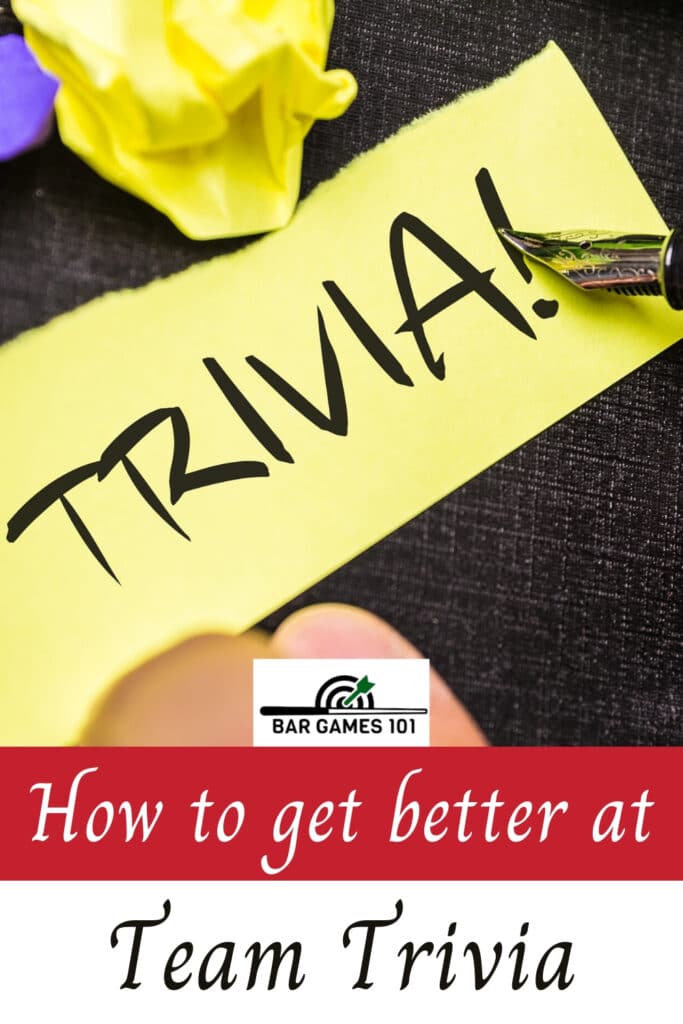After spending hundreds of pub trivia nights on both sides of the microphone with Pour House Trivia, the question I am most often asked is “What makes a great trivia team?”.

For those of us that don’t have James Holzhauer on our list of Facebook friends, there are some easy ways to improve the performance of your trivia team:
1. Find a teammate with at least a 15 year age difference from yourself.
Obviously, our closest friends are usually in the same age range as ourselves.
Since about two-thirds of all pub trivia questions revolve around pop culture, playing with people that share similar interests and experiences can actually be a detriment.
Having a variety of ages and backgrounds among your trivia teammates can greatly improve the success of your squad.
Yes, that means that you may have to endure a night of bar trivia with your parents, but they know who Dick Cavett is (and you probably do not).
2. Invite that one friend who loves the movies (or TV shows or musicians) that you hate.
With the recent rise of on-demand television and music, we can very easily avoid the genres that do not interest us.
Modern technology has fractured entertainment to the point that most people do not see or hear anything that falls outside their personal tastes.
There are over 1,000 TV series currently in production, and chances are you have seen very few of them.
Invite that one friend who is always talking about those shows and musical acts you’ve never seen or heard.
3. When playing the game, take all the time that is allotted to you on every question.
It is a rarity for a pub trivia game to offer an incentive for teams to be the first to turn in a correct answer.
But I’ve seen countless instances of a team turning in an answer right away, only to return to the host and (unsuccessfully) ask for a second chance.
Sure, immediately striding through the bar with the correct answer might intimidate the other teams, but eventually it will come back to bite you.
Even after everyone agrees to an answer, there is no harm to ask “Is there anything else it could possibly be?”.
4. Be aware and honest in regards to your trivia weaknesses and your teammates’ strengths.
Very few of us have a strong base of knowledge in EVERY trivia subject, so while it can be helpful to offer a guess on every question, trivia players need to be aware of their own limitations.
It can be humbling, but on some questions it may be best to say nothing if you know that your teammates are more knowledgeable on certain subjects.
Obviously, if everyone is stumped, start spit-balling ideas, but don’t start dismissing other people’s ideas unless you have some knowledge to back it up.
5. If applicable, learn basic wagering strategy.
If your nightly trivia game requires a wager on the final question, learn simple wagering strategy to maximize your potential winnings.
The most important wagering rule is that in almost every instance, your team should never risk more than the minimum number of points required to cover a full wager by the team immediately behind you.
If your team is not in the lead going into the final question, it’s safe to assume that the teams ahead of you are also using that same strategy.
In a close game, there is a chance that the leading team could drop behind you on a difficult question.
6. Spend at least $15 per person.
While this point has nothing to do with strategy, try to remember that bar trivia exists for one reason.
The trivia companies have promised that their brand will bring patrons out to spend money for the hosting venues.
If these bars and restaurants aren’t profiting from trivia night, there is no reason to continue hosting the game.
Don’t be the guy that spends two hours having the waiter refill his glass of water.
About Pour House Trivia
Pour House Trivia is the fastest-growing live trivia company in the mid-Atlantic region. Founded in 2009, Pour House Trivia currently hosts live pub trivia at more than 70 venues throughout the Washington, D.C. metro area and beyond.

